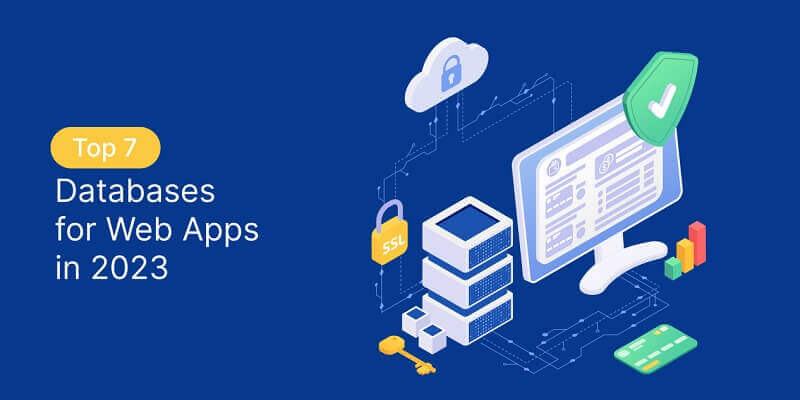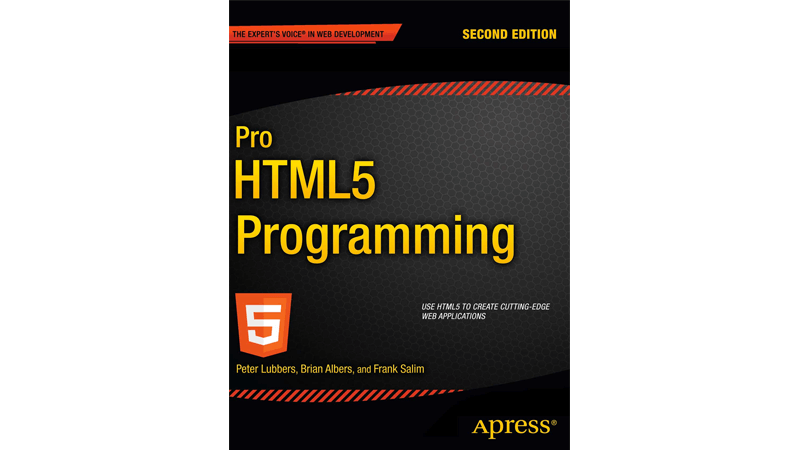Databases are considered an integral part of any software or application. It makes no difference what the type of software is, but picking an apt database becomes imperative for accomplishing your business or project needs. Due to the dynamic demands of the tech sphere, many databases are entering the digital landscape. This is why it becomes vital to consider the popular databases for web apps in 2024. Before that, let us know what precisely a Database is all about.
What is a Database?
The database is a structured collection of organized data typically managed and stored by DBMS (Database Management System). It stores customer information, session data, and other information about the application. Data and DBMS, collectively, along with the applications correlated to them, are commonly known as database systems. In short terminology, it is also known as a ‘Database.’
Top 7 Databases for Web Apps You Must Consider use in 2023
Here is the list of the top 6 databases for web apps that are useful to consider in 2023:-
- Cassandra
- MySQL
- DynamoDB
- MS SQL Server
- PostgreSQL
- ElasticSearch
- MongoDB
1. Cassandra
Cassandra is a NoSQL database management system designed to control high-volume data. Due to its potential and flexibility to manage data of varying levels, it is an appropriate alternative to various applications. Industry giants like Uber, Meta, Netflix, Instagram, and others are leveraging this database.
Key features of Cassandra:-
- Distributed architecture in Cassandra is customized for multiple data center deployment
- Capable of handling large amounts of data beyond multiple commodity servers
- Handles high-write loads
2. MySQL
MySQL is a widely known open-source, relational database management system. Developers prefer it due to its reliable SQL server integration services. Moreover, it delivers benefits like stability, security, and ease of operation. Big tech giants like Netflix, Caterpillar, Zendesk, and McGraw-Hill Education use MySQL.
Key features of MySQL:-
- Cross-platform support
- Large community assistance
- In-built replication support
- Full-text indexing and searching
3. MS SQL Server
Microsoft developed an MS SQL server to achieve the fundamental function of storing and retrieving data as and when other applications demand it. It is known for its steadfastness and protection. On the other hand, it also delivers potent transaction support, ideally suited for applications that adhere to stringent data consistency and integrity. Companies that reportedly use Microsoft SQL servers in their tech stacks are Accenture, Stack Overflow, doubleSlash, and Alibaba Travels.
Key features of MS SQL Server:-
- Capable of handling sizable data
- Handles high-traffic loads
- Prevent data from unauthorized access
- Straightforward and simple to use
4. PostgreSQL
PostgreSQL is an open-source relational database management system with the capabilities of addressing modern data modeling and query optimization. It is an excellent alternative for the processing of complicated data tasks. With adherence to SQL criteria, it has compatibility with few other applications and tools. PostgreSQL’s proficiency in integrating with other database systems makes it a prevalent option for developers and organizations. Reddit, Instagram, Spotify and many others use PostgreSQL.
Key features of PostgreSQL:-
- Easy integration with multiple servers
- Prevents data breaches
- Maintains data integrity
- User-friendly interface
- Large and active community
- Consists of advanced features & scalability
5. ElasticSearch
ElasticSearch is a reliable open-source web-based database used by big tech enterprises like Udemy, Shopify, and GitHub. It is a go-to choice for developers as it helps them to develop applications quickly, ensures that it is high-performing, provides increased scalability, and is easy to use. It is based on the Lucene library, making integrating other programming languages easy. Uber, Shopify, and Udemy use ElasticSearch.
If you are planning to develop one such application reach out to a custom web development service.
Features of ElasticSearch are:-
- Schema-less
- Document-oriented
- Facilitates data handling functions
6. MongoDB
MongoDB Inc. developed MongoDB a cross-platform document-oriented database program. It supports multiple programming languages, including C++, JavaScript, and Python. The platform focuses on providing scalability, availability, and speed. A few well-known companies that use MongoDB are eBay, Adobe, Meta, and Google.
Features of MongoDB are:-
- Handles large volumes of data
- Highly scalable
- Document-oriented database
- Flexible & dynamic database
7. DynamoDB
DynamoDB, also known as Amazon DynamoDB, is a high-performing and scalable database that can be easily integrated into other tools. Well-reputed companies using Amazon DynamoDB in their tech stack include Netflix, Amazon, CRED, Delivery Hero, and many more.
Key features of DynamoDB:-
- Supports automatic horizontal scaling
- Helps to build modern serverless applications
- Backs key-value and document data models
- In-built availability, durability, and fault tolerance
- High-performing database
Conclusion:
As the digital era grows rapidly, many databases enter the market, making it difficult to choose from. Maintaining your web application running becomes crucial as a developer or an owner. Getting in touch with a web app development company can mitigate the risk of selecting the wrong database for your web application. Selecting them will help to add value to your investment.
On the other hand, you can still opt for the above-curated list of databases, which are high in demand amongst the developers in 2023. But remember, choosing according to your project requirements and goals is imperative.


